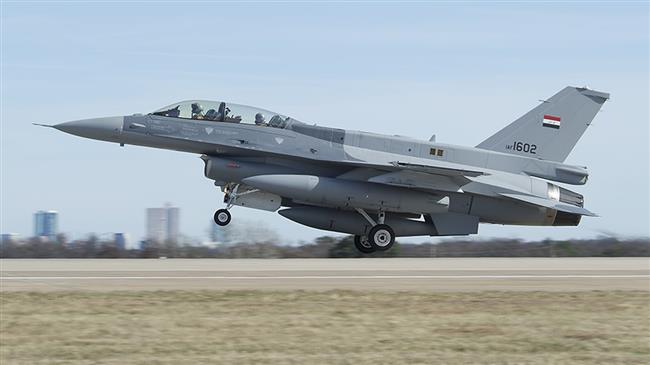Iraq to continue pounding Daesh positions inside Syria

"Iraq will continue air strikes in Syria and will do more to eliminate Daesh
group. It will neither allow Daesh militants to come back, nor a similar
terrorist organization to appear, but Iraq doesn't mean to interfere in internal
affairs of Syria,” Abadi stated on Tuesday.
Lieutenant General Anwar Hama Amin, the commanding officer of the Iraqi Air
Force, also noted that Iraqi military aircraft will press ahead with their
aerial attacks against Daesh strongholds in Syria.
"All the countries in the world are fighting against the terrorist organization.
Today we have a Joint Operations Command in Iraq and we have a
commander-in-chief. When they issue orders of strikes, we will implement them
without hesitation,” he commented.
Iraqi authorities have on occasions stated that they work closely with the
Syrian government to monitor and target terrorist targets based on the efforts
of intelligence and information departments of the security coordination
committee formed between Baghdad, Damascus, Tehran and Moscow years ago, as well
as coordination with the so-called US-led anti-Daesh coalition.
"If we perform a strike, we will coordinate with the international coalition,
the joint security center and all the relevant parties. As we work together, we
follow the principle of partnership to ensure safety and harmony between
allies,” Iraqi Ministry of Defense spokesman Tahseen al-Khafaji said on Tuesday.
On April 23, intelligence sources, speaking on condition of anonymity, told
Arabic-language Shafaaq news agency that Daesh second-in-command had been killed
during an Iraqi airstrike inside the Syrian territory.
The top-ranked extremist, identified by the nom de guerre Abu Luqman al-Suri,
was killed in the attack. He was the deputy of purported Daesh leader Ibrahim
al-Samarrai aka Abu Bakr al-Baghdadi.
The sources added that Suri was "in charge of recruiting attackers and
dispatching them to Iraq to carry out bomb attacks there.”
On December 9, 2017, Iraq’s Prime Minister Haider al-Abadi declared the end of
military operations against the Daesh terrorist group in the Arab country.
"Our forces are in complete control of the Iraqi-Syrian border and I therefore
announce the end of the war against Daesh,” Abadi told a conference in Baghdad
then.
The Iraqi prime minister said on August 31 that Tal Afar and the entire Nineveh
province had been purged of the Daesh Takfiri terrorist group.
The recapture of Tal Afar was made possible with the help of the Iraqi army,
Federal Police, Counter-Terrorism Service units, pro-government fighters from
the Popular Mobilization Units, commonly known by the Arabic name Hashd al-Sha’abi, and
the Interior Ministry's elite rapid response forces, Abadi stated.
On July 10, Abadi formally declared victory over Daesh extremists in Mosul,
which served as the terrorists’ main urban stronghold in the conflict-ridden
Arab country.
In the run-up to Mosul's liberation, Iraqi army soldiers and volunteer Hashd al-Sha’abi
fighters had made sweeping gains against Daesh.
The Iraqi forces took control of eastern Mosul in January 2017 after 100 days of
fighting, and launched the battle in the west on February 19 last year.
Daesh began a terror campaign in Iraq in 2014, overrunning vast swathes in
lightning attacks.
Source: Press TV
















